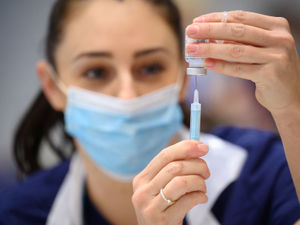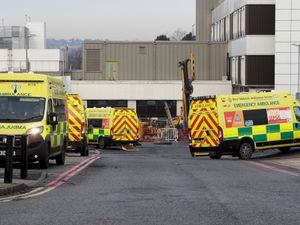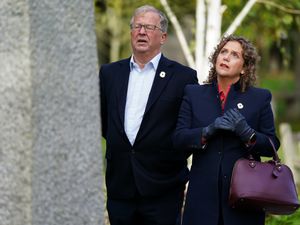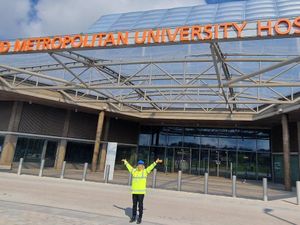NHS staff absences related to Covid on the rise across region
NHS staff absences related to Covid have continued to rise in the region, new figures show.
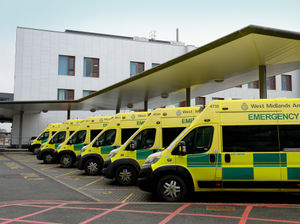
More than 580 staff at The Royal Wolverhampton NHS Trust were off sick because they had Covid-19, or were self-isolating due to the virus, on January 2 – the latest date for which data is available – a 65 per cent increase on a week before.
It accounted for two-thirds of NHS staff absences at the trust.
Coronavirus was the reason behind half of NHS staff absences at Dudley Group NHS Foundation Trust on that date.
NHS England data shows 532 staff at the trust were off – 270 because they had Covid or were self-isolating.
This was a 56 per cent increase on a week before, when 173 Covid-related absences were recorded.
Covid was also the reason behind more than a third of staff absences at Sandwell and West Birmingham Hospitals NHS Trust, affecting 312 workers – a rise of 99 per cent on the previous week.
A total of 121 staff were off because they had Covid or were self-isolating at Walsall Healthcare NHS Trust, accounting for more than a quarter of the absences.
Covid-related absence rose 78 per cent there in a week.
It also increased at University Hospitals Birmingham NHS Foundation Trust by 56 per cent.
Data shows 1,696 staff at the trust were off sick, and of them, 590 were Covid-related.
Across England, the number of NHS staff off work due to Covid increased from 24,600 on December 26, to 39,100 on January 2.
Based on monthly workforce data for September – the most recent available – the figures suggest one in 25 NHS staff working in acute hospital trusts are off for Covid-related reasons.
The army said it could offer assistance to more hospitals around the UK if needed, after 40 military medics and 160 general duty personnel were drafted in to help fill gaps caused by absences of NHS staff in London.
Air Commodore John Lyle said: “We can’t really forecast too far ahead, but certainly, throughout this current surge, we know that it’s particularly difficult in London at the minute, but we are aware that this is impacting all across the United Kingdom.
“We remain in discussions and there are a number of areas where we’re looking at the potential for more assistance."
NHS national medical director Professor Stephen Powis said rising Covid-19 cases were “piling even more pressure” on hospital trust workers.
He said: “Omicron means more patients to treat and fewer staff to treat them.
“While we don’t know the full scale of the potential impact this new strain will have, it’s clear it spreads more easily and, as a result, Covid cases in hospitals are the highest they’ve been since February last year – piling even more pressure on hard-working staff."
Patricia Marquis, the Royal College of Nursing’s director for England, said the situation was not safe.
She said: “Outside of healthcare, staffing shortages are closing shops and cancelling trains but nurses can’t stop helping their patients.
“Instead, they find themselves spread thinner and thinner, but they can’t keep spinning plates indefinitely either.”
Matthew Taylor, chief executive of the NHS Confederation, which represents health authorities and trusts, said people should not feel “concerned” by the presence of the military in hospitals.
He added: “The NHS is not going to disintegrate – it’s been dealing with this crisis for two years and it will deal with it again and NHS managers will burn the midnight oil thinking about how they deploy their resources to deal with things that are most urgent.”
Alan Duffell, HR Director Representative Black Country Provider Collaborative, said: “We continue to encourage all our staff to protect themselves, their colleagues and our patients by making sure they are fully vaccinated against Covid-19 while supporting those who are absent due to virus related issues to return to work safely and appropriately.
“The NHS has tried and tested processes for supporting our staff from a health and wellbeing perspective, as well as redeploying staff based on clinical priorities to maintain safety for our patients and colleagues.”

